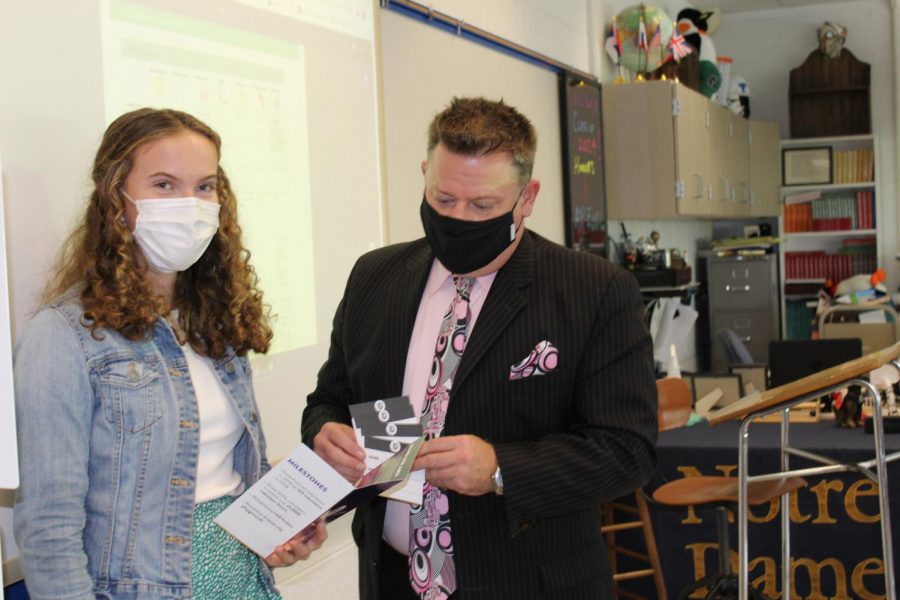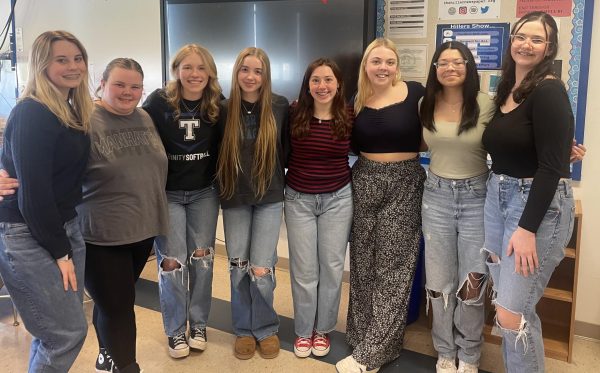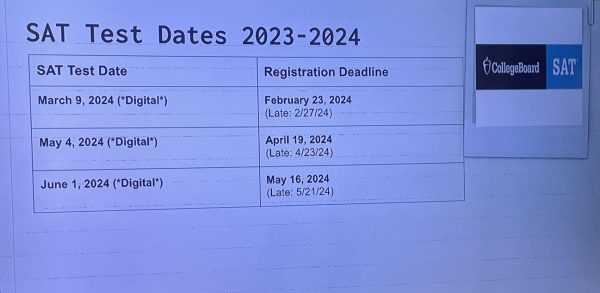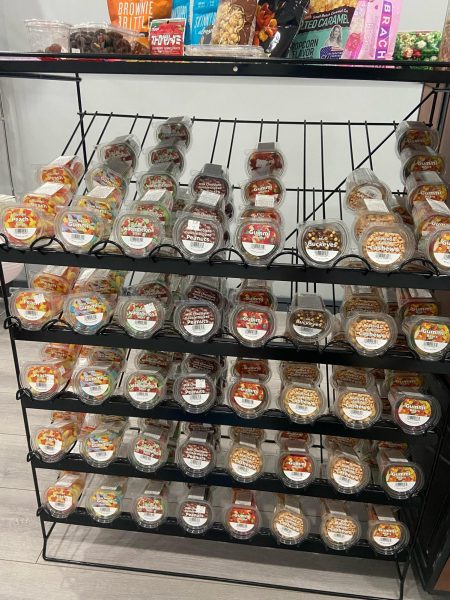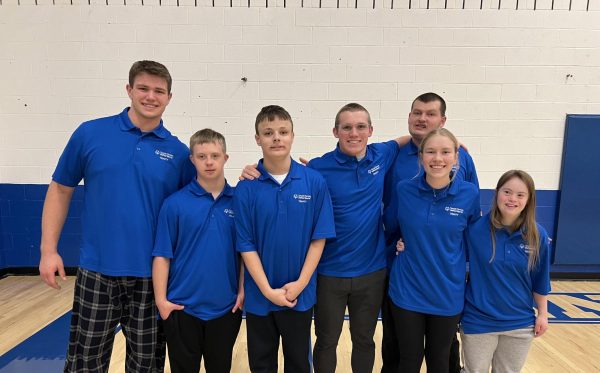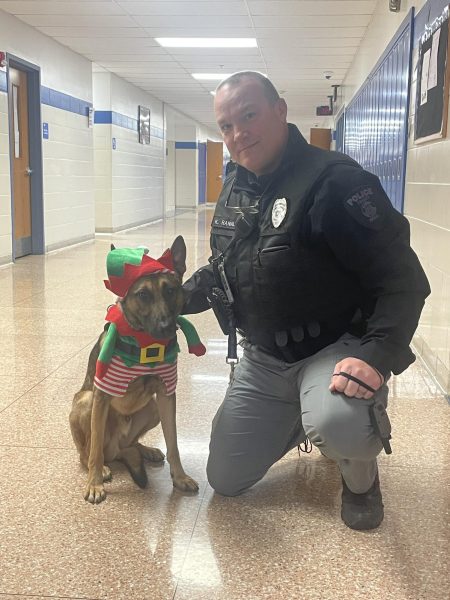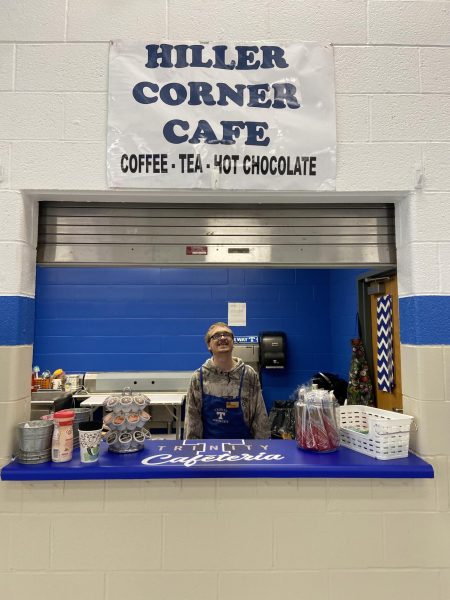COVID can’t quash our clubs!
Pictured here are Rayne Elling, a Dreamer’s Club member, and the club supervisor, Mr. Polansky. Stay tuned for a feature article on Dreamer’s Club next month!
Like most aspects of life, COVID-19 has changed the way school clubs and teams function., but that doesn’t mean the groups haven’t found ways to adapt to new health and safety measures. Clubs throughout the school have taken these creative changes in stride as they begin the 2020-2021 school year.
Aside from obvious limitations on large gatherings, there are many aspects of extracurricular clubs that do not mesh with guidelines for safety amidst the pandemic.
The usual style of a Speech and Debate meet, for example, is not conducive to social distancing. However, that does not mean speech and debate is canceled.
In fact, Mr. Komula, one of the supervisors for the Trinity Speech and Debate Club, said, “In the past, meets were held kind of like a track meet with individual events. But, everything’s going to be held virtually this year. Students will be at home. Since we can’t travel anywhere, students will submit their entries to a Google Classroom to be judged and then move on if they qualify.”
The virtual style speech and debate has chosen is not exclusive. Other extracurriculars, like Math League and Academic League, are also exploring computerized alternatives.
For the most part, digital competitions and activities function as substitutions for in-person gatherings, although that does not mean they do not come with a unique set of challenges. The asynchronous nature of virtual competitions, for instance, is likely to hinder some students from joining clubs.
Mrs. Sirianni, who heads Math League at Trinity, commented about concern over a drop in student participation because it means students are not taking advantage of opportunities to build their resumes and college applications.
However, Sirianni also understands students are often drawn to a club to spend time with friends, and without that, the allure of extracurriculars can be lost.
“I think it’s important to join clubs, but…being on computers isn’t the same as being with friends, enjoying time with people with similar interests,” Sirianni stated.
To combat a decrease in student participation, many clubs have extended the period of time they accept new members. Both Komula and Rayne Elling, a sophomore member of the Dreamer’s Club, mentioned their respective clubs are still taking new members and encouraged any interested students to join.
Though some clubs have certainly dealt with a decrease in participation, other extracurriculars, like fall sports and community service programs, have been able to retain their members.
Elling stated that the Dreamer’s Club has been able to maintain its goals of community outreach in Washington. She said the group has been following CDC guidelines, but student involvement is not limited.
If the past year has taught us anything, it is to find ways to break the monotony of day-to-day life. So, while clubs may look a little different this year, they still provide a fun and educational way to get involved at the school. And who knows, maybe you will find your next favorite hobby in the process!
Outside of school, you can usually find Emma dancing, solving word puzzles, buried deep inside a book, or dreaming of some new and delicious dessert to...

